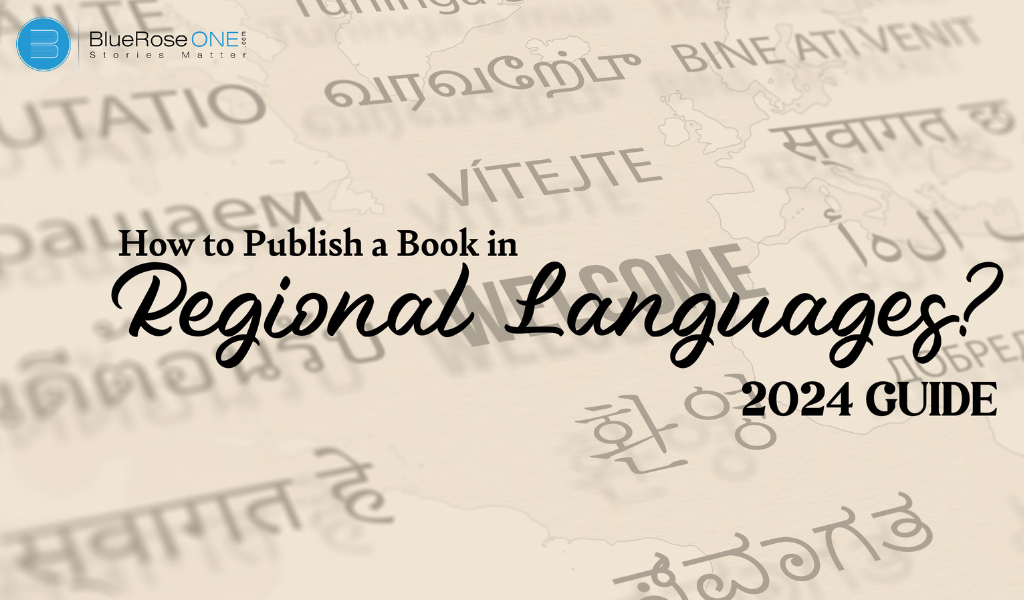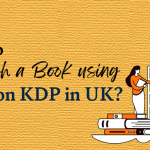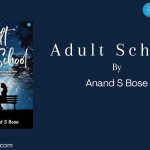The publishing industry has seen a radical transformation as more people become aware of the rich diversity of regional languages. We’ll go over the procedures and factors to take into account when publishing a book in a regional language in our 2024 guide. With tips on using digital platforms and embracing linguistic variety, this guide aims to enable prospective writers to reach a wider readership.
Here are Some Steps on How to Publish a Book in Different Regional Languages – 2024
- Identify Your Target Audience
- Choose the Right Regional Language
- Understand the Regional Publishing Industry
- Craft Your Manuscript
- Collaborate with Regional Editors and Translators
- Build a Strong Author Platform
- Explore Regional Publishing Houses
- Why Consider Self-Publishing
- Engage in Literary Festivals and Events
- Utilise Online Distribution Channels
- Promote Your Book Effectively
- Seek Media Coverage
Identify Your Target Audience
The first step in entering the complicated world of publishing is to carefully determine who your target market is. This crucial first stage entails gaining a thorough grasp of the interests and demographics of potential readers who speak the regional language you want to concentrate on. Understanding your audience’s distinct qualities is essential to creating material that suits their tastes.
Reader choices are greatly influenced by demographic parameters, including age, gender, educational background, and socioeconomic level. For example, an older, rural audience may be more interested in traditional storytelling with a strong cultural past, whereas a younger, urban audience may be more drawn to contemporary subjects. Finding out about the particular interests of the target population through market research or surveys can be quite beneficial.
Additionally, you may produce content that connects with your audience more deeply by learning about their psychographics, which include things like lifestyle, values, and cultural influences. Writing to the expectations of your readers—whether they are fans of romance, historical fiction, or socially conscious themes—builds a closer bond between the writer and the reader.
Choose the Right Regional Language
For authors hoping to publish in regional languages, India, a melting pot of varied cultures and languages, offers both a unique difficulty and an opportunity. The nation is home to several different languages, each with a rich literary history of its own. Selecting the appropriate regional language is a complex process that requires striking a careful balance between readership viability, storytelling requirements, and personal connection.
First and foremost, writers must to take into account their linguistic and personal backgrounds. Writing in a language that speaks to their cultural heritage frequently gives the story more authenticity and fosters a closer relationship with the reader. Furthermore, a particular regional language may contain the genuine substance of the story you wish to portray, adding local subtleties, idioms, and cultural allusions to the story.
But a personal connection by itself is insufficient. Writers are required to assess the possible audience for the selected language. Certain languages may speak to specialised populations, but others may have a large audience because of their historical or regional importance. Having a healthy readership guarantees that the time and energy put into creating a literary piece will be appreciated by a willing audience.
The use of the local language is, all things considered, a nuanced yet crucial choice that balances the need for narrative coherence, reader response, and interpersonal relationships. Authors can start a publishing path that not only fits with their vision but also deeply connects with the target audience by carefully managing these factors.
You may also like: Unlocking Success: Bluerose Publisher’s Best Amazon KDP Books
Understand the Regional Publishing Industry
Prior to diving into the nuances of writing and editing your novel, it is critical to have a solid awareness of the regional publishing landscape. Every regional language market has its own ecology, which includes different publishers, literary agencies, and routes of distribution. In order to successfully traverse this terrain, aspiring writers need to conduct thorough research and become acquainted with the major figures influencing the literary field.
Find well-known publishing organisations that are experts in the language you have chosen for your chosen region. These companies are essential to getting books in front of readers. If they are common in the area, literary agents can be invaluable friends in negotiating the challenging process of getting a novel published. It is ensured that your book reaches its target audience by being aware of the distribution channels that are common in the area.
Furthermore, it’s critical to stay abreast of the needs and trends in the language community. Writers can adapt their works to the pulse of the local literary community by keeping up with popular genres, new themes, and reader preferences. This information helps the publication process run more smoothly and puts the writer in a position to satisfy the intended readership.
Craft Your Manuscript
Now that you have knowledge of the local publishing scene, the next stage is to carefully craft your work. Developing a story that truly connects with the target audience requires careful consideration of the subtleties of the local language.
The chosen regional language’s linguistic and cultural nuances must be thoroughly experienced by authors. This entails being aware of idioms, colloquialisms, and the language’s distinctive rhythm of expression. Working with a skilled editor or language specialist becomes essential if the author is not native in the target language. This collaboration guarantees cultural authenticity in addition to linguistic precision, enabling the story to blend in perfectly with the local culture.
A manuscript that honours the linguistic subtleties of the local tongue improves the storytelling experience and strengthens the bond between the writer and the reader. It exhibits a dedication to providing a story that is both understandable and profoundly relevant in the cultural setting it aims to enter.
Collaborate with Regional Editors and Translators
Working with local editors and translators is an essential part of the collaborative process of making your book come to life, particularly in cases when the author is not a native speaker of the target language. Since these specialists are native speakers, their degree of competence is crucial in fine-tuning the work to ensure that it effortlessly integrates with the linguistic peculiarities of the target culture.
Editors that possess an in-depth knowledge of the local language are capable of refining the manuscript by attending to grammatical nuances, cultural nuances, and stylistic components specific to that language group. Their contributions improve the story’s overall quality and raise it to a level where the local audience can relate to it honestly.
When an author works in a language other than the local tongue, translators are essential. They fill the void, guaranteeing that the story’s core is correctly communicated without sacrificing linguistic precision. Working with experts who are fluent in the local tongue ensures that the narrative retains its cultural authenticity and makes for a more engaging reading experience for the readership.
To put it another way, working with regional editors and translators is not only a practical need, but a deliberate choice that will improve the manuscript’s authenticity and cultural relevance and, in the end, strengthen the bond between the author’s vision and the local audience.
Build a Strong Author Platform
Building a strong author platform is strategically essential in today’s publishing world if you want to connect and interact with your target audience. In this endeavour, utilising digital platforms is a highly effective instrument. Building a portfolio website acts as a primary information point for readers to discover more about you, your creations, and your next endeavours. Make sure the website provides users with an easy-to-use and visually pleasing experience.
Participating on social networking sites is also essential. Engage in active participation in social media groups, forums, and online communities that are targeted at readers of the local language you are studying. This gives you a direct line of communication with your audience and enables you to learn about their expectations and preferences. Authentic and regular interaction on these platforms encourages reader loyalty and a sense of community.
In addition to helping you engage with your audience, a good online presence draws in possible publishers. Authors who bring a devoted readership to the table are becoming more and more valued by publishers. A carefully chosen web presence highlights your dedication to connecting with readers and highlights your potential as a commercially successful writer.
You may also like: Book Review – Blood Zone a Book by Aastha Chaurasia
Explore Regional Publishing Houses
Investigating and interacting with regional publishing firms is a crucial first step in the goal of publishing in regional languages. These niche publishers frequently possess a deep comprehension of the linguistic and cultural nuances present in regional literature. Writers ought to carry out exhaustive investigation to pinpoint publishing organisations that specialise in the particular language they are aiming for.
It is imperative that you submit your manuscript to publishers who have a history of supporting local literature. Seek out publishing companies that have actively supported a range of perspectives and narratives, giving up-and-coming local writers a platform. Matching your book with a publisher who supports local voices will make it more likely that your novel will get the recognition it merits in the community’s literary scene.
These publishers, who are frequently well-established in the local literary scene, can offer insightful opinions, helpful advice, and encouragement all along the publishing journey. Working with these publishing firms gives you exposure to a readership that is enthusiastic about promoting the linguistic diversity and cultural richness of regional languages.
Consider Self-Publishing
Self-publishing has become a potent option for writers who want autonomy and control over their work in the age of digital disruption. Authors are empowered to independently publish and distribute their books using digital self-publishing platforms. For authors from smaller areas, this strategy is especially helpful since it lets them go around the publishing scene without the help of conventional gatekeepers.
Examining self-publishing alternatives gives writers the autonomy to choose what kind of editing, cover art, and promotion they want. Making sure your book is e-book compatible is essential if you want to reach the expanding number of people who read digitally. Your work will reach a wider audience thanks to its accessibility, particularly in areas where reading on digital platforms has become the preferred method of literary consumption.
Self-publishing gives you flexibility, but it also necessitates planning. In order to guarantee that their writing satisfies industry standards, authors ought to engage in expert editing and cover design. A strong marketing strategy is also essential to increasing the self-published book’s visibility.
In the end, authors can traverse the ever-changing terrain of regional literature by choosing to work with regional publishing houses or go it alone. These strategies give up-and-coming regional voices a platform to connect with readers who are ready to read a variety of tales, adding to the rich fabric of regional language literature.
Engage in Literary Festivals and Events
For writers hoping to make a name for themselves in the local literary scene, actively participating in festivals and events is a smart decision. These events offer a vibrant forum for networking with other writers, publishers, and ardent readers. Authors who attend these events not only broaden their professional network but also acquire insightful knowledge about the local literary scene.
Literary festivals present writers with a singular chance to present their work, participate in conversations, and establish connections with publishers who are actively looking for local perspectives. These exchanges may open doors for cooperation, raise one’s profile, and provide insight into the changing landscape of the local literary scene. In addition, authors can actively take part in panel discussions, book signings, and other events that help to publicise and promote their work.
Utilise Online Distribution Channels
Using online distribution channels is essential in the digital age to reach a larger audience. Authors who want to make their books easily accessible to readers should embrace online retailers such as Amazon, Flipkart, and small independent bookstores. These distribution platforms serve the tastes of the expanding number of people who read books digitally while also expanding the book’s reach.
Authors can reach a worldwide audience and have their work transcend national borders with online distribution. By enabling authors to self-publish and distribute their works digitally, platforms such as Amazon Kindle Direct Publishing (KDP) offer a productive and economical means of making local literature accessible to a wide range of readers.
Through the use of these online platforms, writers can reach readers who might not have easy access to traditional bookstores and take advantage of the enormous potential of the digital economy. This strategy makes sure that regional literature reaches a wide range of readers and is in line with the shifting preferences of readers, which helps to elevate the status of regional voices in literature.
Promote Your Book Effectively
A strong marketing plan is necessary for a book launch to be successful, particularly when it comes to regional literature. Writers ought to judiciously utilise many platforms to generate excitement about their compositions. Social media channels are essential to this project because authors may interact with readers and share snippets and behind-the-scenes content on sites like Facebook, Instagram, and Twitter. Moreover, establishing connections with book bloggers that focus on local literature helps increase visibility in the literary world.
Interacting with book reviewers and local influencers is another effective strategy. These people frequently command the attention of a devoted readership and have a big say in how a book is seen. Engaging influencers in interviews, features, or reviews can help expose the book to a wider readership and build its reputation.
Identify Your Target Audience
The first step in entering the complicated world of publishing is to carefully determine who your target market is. This crucial first stage entails gaining a thorough grasp of the interests and demographics of potential readers who speak the regional language you want to concentrate on. Understanding your audience’s distinct qualities is essential to creating material that suits their tastes.
Reader choices are greatly influenced by demographic parameters, including age, gender, educational background, and socioeconomic level. For example, an older, rural audience may be more interested in traditional storytelling with a strong cultural past, whereas a younger, urban audience may be more drawn to contemporary subjects. Finding out about the particular interests of the target population through market research or surveys can be quite beneficial.
Additionally, you may produce content that connects with your audience more deeply by learning about their psychographics, which include things like lifestyle, values, and cultural influences. Writing to the expectations of your readers—whether they are fans of romance, historical fiction, or socially conscious themes—builds a closer bond between the writer and the reader.
You may also like: The Evolution of Book Publishing Companies
Seek Media Coverage
Making a pitch for your book to regional media is a calculated step towards increasing your presence in the local literary scene. Promoting local TV channels, radio stations, and newspapers that highlight information specific to the area is a great idea. Creating an effective press release and contacting reporters can lead to beneficial media attention.
In addition to introducing the book to a larger audience, media attention gives it more authority and credibility. The story surrounding the book is enhanced by interviews, features, or reviews published in area media, which position it as a significant contribution to the local literary landscape. In addition to drawing in new readers, this publicity establishes the author as a prominent figure in the local literary scene and strengthens the feeling of community.
Adopting regional languages is not simply a decision but also a celebration of the linguistic diversity in the publishing industry, which is always changing. Aspiring writers can flourish in local literary ecosystems and contribute to them.
Through proficiency in the selected language, cooperation with regional specialists, and manoeuvring through the digital terrain, writers can effectively release their works and contribute to the literary scene by showcasing a variety of perspectives and narratives. This 2024 guide opens doors to new literary worlds for anyone prepared to go on the thrilling adventure of publishing in regional languages.
Read: A Complete Difference Between American & British Literature.
BlueRose Publishers is a self-publishing platform where anyone with the dream of becoming a writer can come and achieve their dreams. You will always be welcomed here always.
Publish your book for free with BlueRoseONE and become a bestselling author. Don’t let your dream of becoming an author fade away, grab the opportunity now and publish your book – be it fiction, non fiction, poetry or more.
















